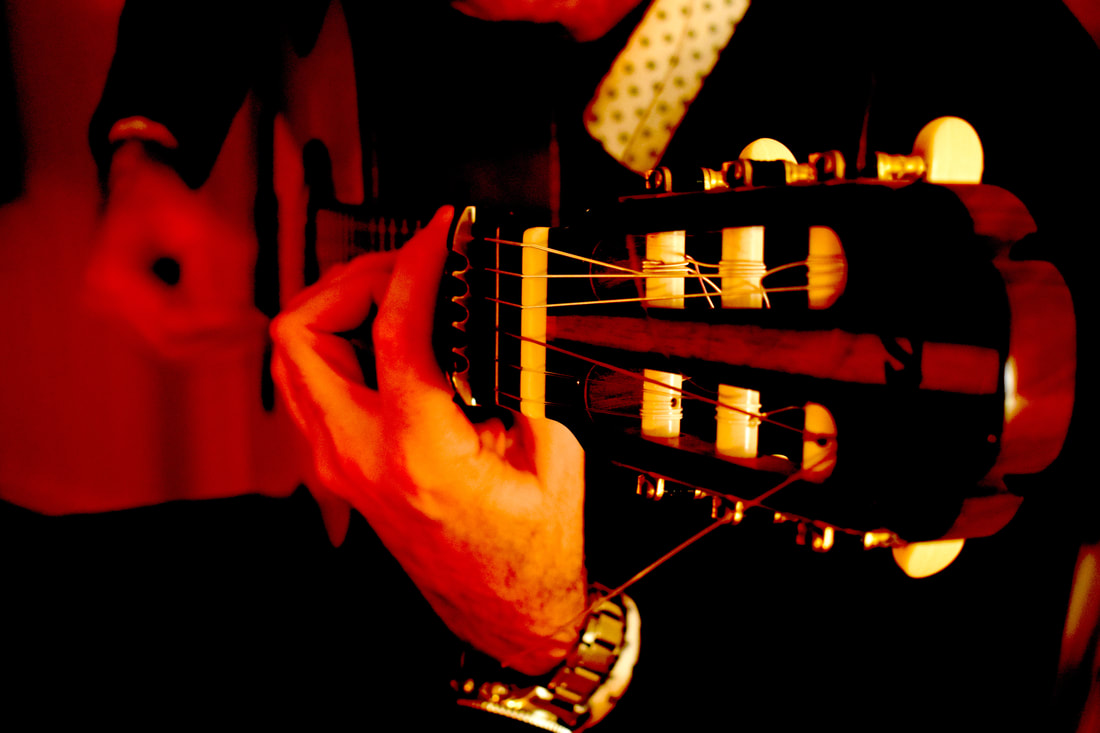Standard A Chord Fingering (1-2-3):
- Index finger (finger 1) on the 2nd fret of the G string (3rd string)
- Middle finger (finger 2) on the 2nd fret of the D string (4th string).
- Ring finger (finger 3) on the 2nd fret of the B string (2nd string).
Alternative (Flamenco) A Chord Fingering (1-3-2):
- Index finger (finger 1) on the 2nd fret of the G string (3rd string).
- Ring finger (finger 3) on the 2nd fret of the B string (2nd string).
- Stretch your middle finger (finger 2) to fret the 2nd fret of the D string (4th string). This can be trickier at first, but it can improve finger independence later on.
Pro-Tip: Whichever method you choose, focus on keeping your fingers curved and close to the fretboard. This ensures a clean sound and makes switching chords smoother.
Strumming the A Chord
There are plenty of right hand techniques or rasgueos in flamenco to make the A Chord sound interesting.
But for beginner acoustic guitarists who are not bothered about flamenco, here are a couple of options:
- Down Strumming: Brush the pick (or your fingers) down across all the strings. This is a straightforward technique for beginners
- Basic Strumming Pattern: Down-down-up-down (D-DU-D). This adds a little more rhythm to your playing.
Practice strumming the A chord while focusing on a clean sound. Avoid muting any strings accidentally
Practice Makes Perfect
The key to mastering the A chord is consistent practice. Here are some tips:
- Start slow: Focus on forming the chord cleanly and accurately before increasing speed.
- Switch chords: Practice transitioning between the A chord and other easy chords like E or D.
- Use a metronome: This helps develop a steady strumming rhythm.
- Find fun songs: Many beginner songs utilize the A chord. Playing along with music makes practice enjoyable.
With dedication, the A chord will become second nature. From there, you can explore variations and venture into the exciting world of guitar chords!
Learn from a Master Who's Performed for Royalty: Start Your Flamenco Journey Today
- Unlock this article & video library for free
- Join thousands of guitarists who finally got past only 'knowing some basic chords'
- Learn flamenco from a lifelong performer & celebrity teacher from Madrid
- Rafael has taught EOB (Radiohead), Jack Peñate & played for HRH Elizabeth II (etc)
By entering your email you agree to receive email updates from Flamenco With Rafael. See our Privacy Policy.




